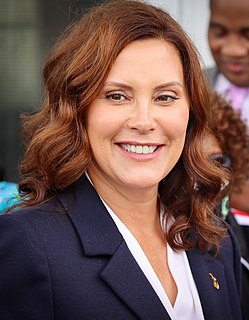A Quote by Brene Brown
I think if you follow anyone home, whether they live in Houston or London, and you sit at their dinner table and talk to them about their mother who has cancer or their child who is struggling in school, and their fears about watching their lives go by, I think we're all the same.
Related Quotes
People are more willing to talk about child abuse. When this whole McMartin thing went down, I was at a dinner party with about eight people, all from different backgrounds and from all over the world. And every single person at that table had had some weird experience as a child. I think everyone has - whether it was with a babysitter, or playing doctor, but usually when some older person tries to come in contact with you. It's amazing how much we block out.
What happens at the average church or synagogue or mosque is that I don't know many priests or ministers or rabbis who say to their congregation, 'go home and talk about the religion at the kitchen table with your kids...talk about God, talk about what this is all about.' They say in general, come back on the weekend, we'll talk to you about it.
Every time you hear anyone talk about the Caribbean, whether it's Caribbeans themselves or people outside, there's always talk about women's bodies. Talk about this voluptuousness, this kind of stereotype of what a Caribbean person is. And I think these are stereotypes that even people inside the culture, we actually sometimes claim them and we're very proud.
Whether you talk about the olive oil, whether you talk about Aceto Balsamico, whether you talk about Grana Padano, whether you talk about Mozzarella di Bufala. These are all traditional Italian products that are hard to beat, and they're easy to transport and buy. You don't have to do much around it. Just eat them.
As a child, I probably knew phrases that other children didn't known, like "pitocin drip" or "myocardial infarction." Some kind of knowledge was always in the air. My parents would always talk about science at the dinner table, saying something about this patient or some other patient. So I guess for a nanosecond in early high school, I thought about going into medicine.
You're a disaster for us, Clary! You're a mundane, you'll always be one, you'll never be a Shadowhunter! You don't know how to think like we do, think about what's best for everyone-- all you think about is yourself! But there's a war now, or there will be, and I don't have time or the inclination to follow around after you, trying to make sure you don't get us killed! Go home, Clary. Go home!
If you are female, and conditions are otherwise apt, you are supposed to decide whether you want to become a mother by thinking carefully about whether you really want to have a child of your very own, what it would be like to be a mother, whether this is something you really want and will be happy with, etc. In general, you are supposed to evaluate whether you should have a child largely on the basis of what you think it will be like for you to have a child.
Children used to get bullied at school. Now they go home and that's where the problem starts - because they sit on their phones all night, thinking about who's 'liked' a photo of them, who hates them, who loves them. They don't know what's real and what's not, editing their lives constantly to fit other people's views.
Children used to get bullied at school. Now they go home, and that's where the problem starts - because they sit on their phones all night, thinking about who's 'liked' a photo of them, who hates them, who loves them. They don't know what's real and what's not, editing their lives constantly to fit other people's views.
I don't think anyone has a bad perception of me. Just a limited one. Everyone thinks I pretty much sit around and talk about Jesus all the time. But I'm normal. I'm just a guy. Yeah, I love Jesus and do things a bit different, but I have the same conversations and share the same thoughts as anyone else.

































